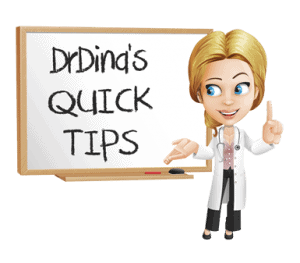What Are Signs Of Depression And Anxiety During Pregnancy And After Baby?
Pregnancy is a time of physical and emotional change. Each woman experiences pregnancy differently and that experience may be affected by factors such as:
- Whether or not the pregnancy was planned
- Whether or not there is a supportive partner involved
- A woman’s feelings about her own body and changes to her body
- The type and extent of physical symptoms of pregnancy e.g. morning sickness
- A woman’s relationship with her mother and her beliefs about family and having children
- Expectations of pregnancy and having a baby and how similar or different those turn out to be in reality
Adjusting to having a new baby in the family can give rise to many different feelings. Click here for more information on adjusting to becoming a parent.
What are the “Baby Blues”?
The baby blues are a term used to describe feelings of sadness, anxiety or over-emotionality in the first few weeks after giving birth. Both men and women can experience the baby blues. They are considered to be fairly typical and often resolve without any outside help.
If the baby blues continue beyond the first two weeks or you have severe depression symptoms, including thoughts of wanting to hurt yourself or your baby, you should seek help from your Dr, midwife or a mental health professional immediately.
If you, or someone close to you is concerned that you may act on feelings of wanting to hurt yourself, the baby or someone else, you should go to your nearest emergency room.
What Are Signs of Depression and Anxiety During Pregnancy and After Giving Birth
Typical signs of depression and anxiety include:
- Feeling or being much more tearful than usual
- Not being able to enjoy things that you used to
- Not feeling connected to or affectionate towards your baby (this can be normal in the initial period following birth)
- Feeling scared or panicky for no reason
- Changes in eating
- Changes in sleeping (not purely due to being up with a newborn)
- Severe depression symptoms – thoughts of harming yourself, someone else or the baby
If you are experiencing several of the above symptoms or have noticed a significant change in your mood or motivation, you should speak to a health or mental health professional.
For more information about depression and anxiety during pregnancy and after giving birth, click here.
How Long Do These Concerns Last?
Everybody’s experience is different and there are many factors that can lead to a difficult period of time during pregnancy or after childbirth. As such, the time these concerns last also vary greatly from person to person. Getting the right support from family, friends, professionals and the community is essential to feeling better. For more information on how to help yourself or someone you know struggling with these issues, see here.
Should I Stop Taking anti-Depressants while Pregnant or Nursing?
If you are taking an anti-depressant and considering becoming pregnant or are pregnant, you should always speak to your prescriber about the best course of action. There are anti-depressants that are considered to be safe to take during pregnancy and breastfeeding.
Click here for a news report on the potential dangers of stopping taking anti-depressants during pregnancy if you have experienced severe depression.
Postnatal Depression Test
Health professionals across the world, use the Edinburgh Postnatal Depression Scale (EPNDS) to screen for pre and post-natal depression. It is designed to be administered by a health professional but is available freely on the internet.
The EPNDS should ideally be completed with a health professional. It asks questions about how you have been feeling in the last 7 days. If your score is higher than 10, you should always speak to a health professional about your score and the symptoms you are experiencing.
A copy of the EPNDS and other information about depression and anxiety during and after pregnancy can be found here.
If you, or someone close to you is concerned that you may act on feelings of wanting to hurt yourself, the baby or someone else, you should go to your nearest emergency room.
Quick Tips:
-
Baby blues are normal
-
Post-natal depression and anxiety are common
-
SEEK HELP if you feel it is getting worse or there is a risk to you or your baby
What is the clinical depression definition?
Why can’t I sleep after having a baby?
Dr. Jemma Helfman is a child and adolescent clinical psychologist. She works at Kidcrew, providing assessment and interventions for children with a variety of presenting difficulties. Jemma also provides consultation and training to schools and daycares.











